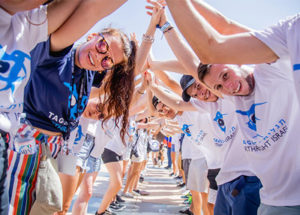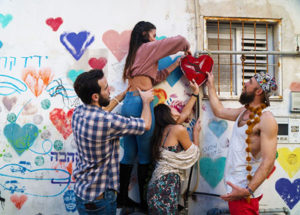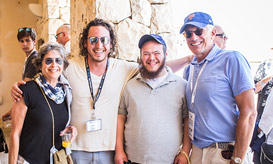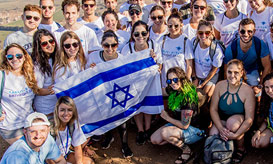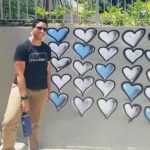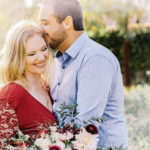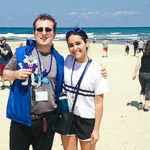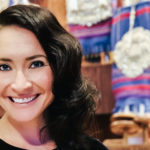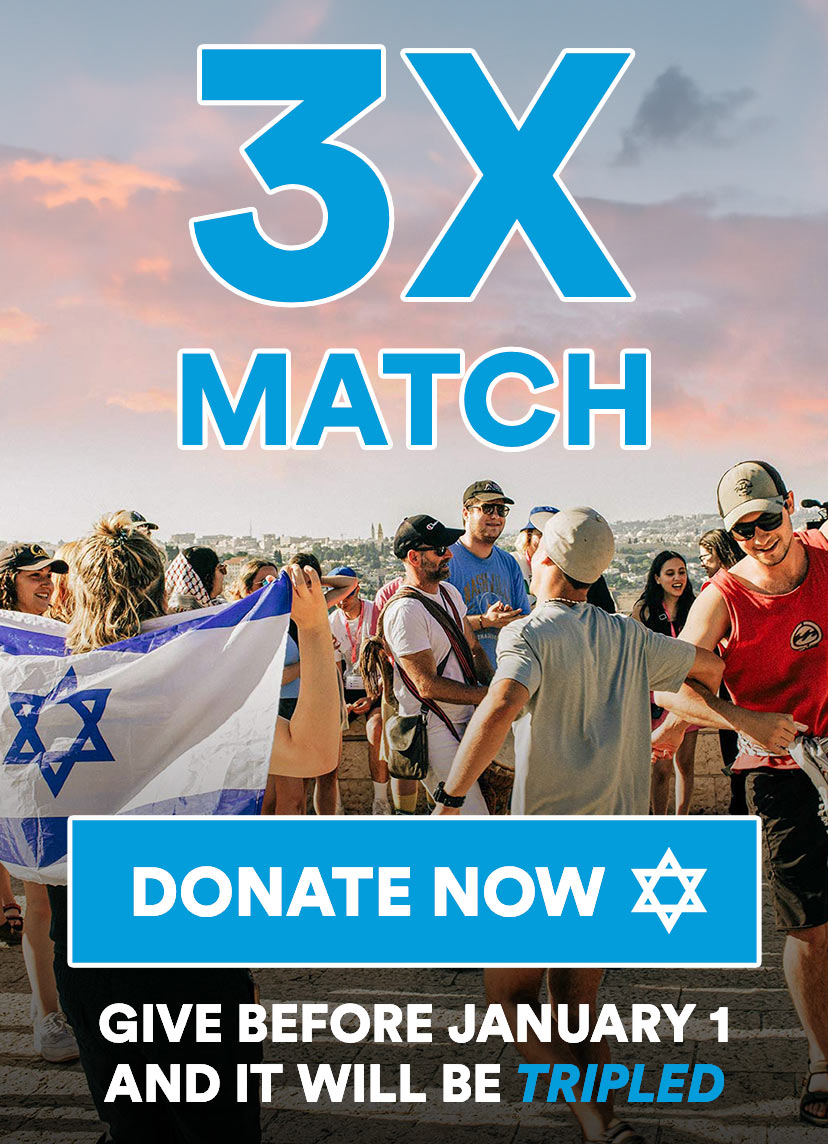This may be a bit cliché because everyone who goes on Birthright Israel seems to say…
I returned from my Birthright Israel trip several months ago now. There, I took advantage of the opportunity to have a Bat Mitzvah at the age of 23, during which each participant spoke about what they wanted to commit to from that day forward. Below, I reflect on this speech, discussing what my trip meant to me and how the ceremony connects my past, present and future.
“After being accepted to Birthright Israel and learning through friends that I could do a Bar or Bat Mitzvah ceremony, I knew I wanted to have one here. I can’t think of a better mishpacha to celebrate with. This [ceremony] isn’t necessarily a transition for me, but a public and personal affirmation of both recent personal events and my two years studying Hebrew at an Ulpan. There are many things in my life I feel haven’t really culminated yet. I didn’t find many answers on this trip, but, instead, lots of questions — good questions. To me, this [ceremony] is an affirmation of dedicating my life to something bigger than myself, living by the beliefs and traditions that have shaped and guided my family for generations.”
My Hebrew name, Rinat Meira, literally translates to the “joyous song of one who illuminates.” The meaning is twofold. “Rinat” pays homage to my family’s rich musical heritage. My great, great uncle, Abraham Zevi Idelsohn, both co-wrote Hava Negila and traveled to various synagogues in young Israel, identifying the common melodies that would eventually form the basis of modern Jewish music. My paternal grandmother, furthermore, was a beloved piano teacher in both South Africa and the United States. As a professional dancer, I continue this musical legacy.
“Rina,” however, also appears as a subset of my English name, Sabrina. While unintentional, it’s interestingly symbolic. Though I did not grow up actively identifying as Jewish, the “Jew” has been there all along, hidden in plain English, waiting to be embraced. The second name, “Meira,” speaks to my mother’s side of the family. Rearrange the letters and they spell “Marie,” my maternal grandmother’s first name and my mother’s middle name. Both women, as the word suggests, radiate light and kindness, illuminating these same qualities in others.
“Like many [of my fellow participants] have echoed, I, too, grew up in an interfaith family, Jewish and Irish Catholic. While I don’t consider myself particularly religious in the traditional sense, belief — that which ‘illuminates’ us — was always prevalent in my household on both sides. In the past, I’ve related to this [idea] in terms of believing in something just beyond our reach, in the forces that bind us.”
I often felt uncomfortable in formal houses of worship. The dance studio became my synagogue, my cathedral. There and on stage, I connect to shekhinah, that which “dwells” amongst all things. As our Tour Educator, Yifrat, said during my extension program with Livnot U’Lehibanot in Tzfat, “one way to read the Torah is as if the stories exist as part of history, the other is as if the stories exist as archetypes within yourself.” What better way to wrestle with our own stories than through art.
“But, in the past year, I’ve learned that belief can also mean patience, both for yourself and others. It’s sort of like what we talked about with Lecha Dodi. You have to strike that balance between putting yourself out there” — meeting the Sabbath bride — “and also sometimes standing back and just enduring” — greeting the inner light of Shabbat. “This trip and my career — dance, auditions and rejection — have taught me that sometimes the scariest thing to do is just to live those unsolved questions and simply stay the course, trusting in your own path.”
Borders, physical and social, are complex. Middle Eastern politics are complex. Choosing to celebrate life in a country, and world, at war is complex. Jewish identity — in all its vast, sometimes conflicting, beautiful facets — is complex.
“I feel that the best way to live my own Tikkun Olam is to create space for other people to live these questions, as well. I find holiness in many things — movement, music, theatre, the written word. I hope in the future to continue honing my artistic voice to share with audiences and to continue teaching writing to students of all ages. One day, possibly in Israel, I’d like to work in arts administration, helping artists bring their work to the public.”
I hope this will be my “joyous song” — to help others find their own voices, too.


—-
Sabrina Karlin is a professional dancer, freelance journalist and copyeditor based in New York. To follow her journey, connect with her on her professional platforms, sabrinakarlin.com and scribbleandtype.com.

